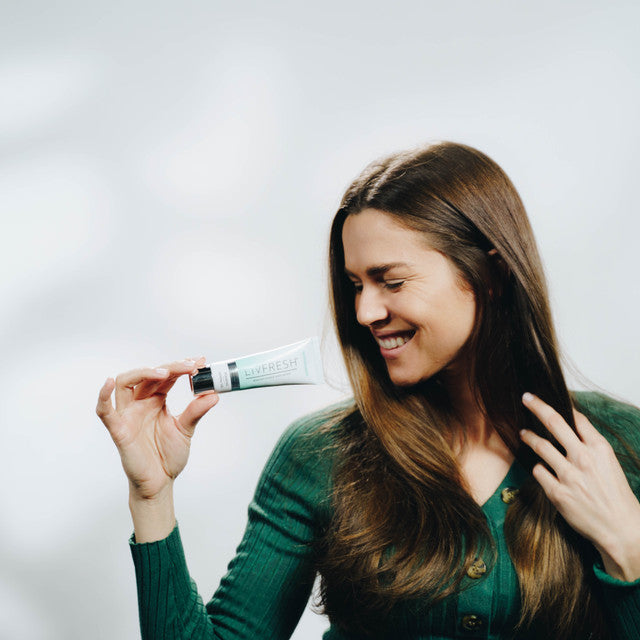Most people associate dental care with a great smile. While it's true that one of the primary purposes of dental care is to care for your teeth, it is not the only thing. Dental care concerns your entire mouth, including your gums, tongue, and lips. If you have sores in your mouth, a dentist might be able to help treat them, and we have a few treatment suggestions as well. Some of the most common types of mouth sores are listed below.
Canker Sores
There is no clear reason why some people are prone to canker sores, but we know that they often appear in times of high stress. Canker sores are typically white in the middle and have a red ring. They can be very uncomfortable and make it hard to eat. They can appear on the cheeks, inside the lip, or on the gums. Unfortunately, there is no treatment for canker sores other than rinsing with salt water and taking over-the-counter medication for the discomfort. They should disappear in about seven days.
Cold Sores
Cold sores or fever blisters were once thought of relative to running a fever or having a cold. The fact is cold sores come from the Herpes Simplex Virus I. HSV is usually transmitted by a kiss from someone infected, sharing a towel with someone that is infected, or sharing utensils. Once you have HSV, you always have HSV, but that does not mean you always have cold sores. Some people build antibodies. There is a treatment for cold sores that your dentist can recommend.
Thrush Sores
Thrush is often seen in nursing children and adults who use steroid inhalers or have a weak immune system. It's a type of oral yeast infection and appears as little white spots covering the inside of the lips, tongue, and gums. Thrush is not painful like the other common mouth sores, however, it is uncomfortable. Thrush can feel itchy. It is fully treatable, usually with antibiotics as well.
What Causes Mouth Sores?
There is evidence that stress plays a big role in developing mouth sores. According to Highland Dental Group, people that suffer from mental health problems and constant stress often have oral health problems. If you smoke, that can also cause mouth sores.
According to WebMD, many people get mouth ulcers at least once in their lives — specifically, aphthous mouth ulcers, or canker sores. Some other common causes are:
- Food allergies
- Biting your cheek from the inside
- A burn or cut from food
- Injury from a toothbrush or toothpaste containing irritants
- Injury from a sharp tooth, braces, badly fitted dentures, or a rough tooth filling
- Infections
- Alcohol and tobacco use
- Immunotherapy medication
- Chemotherapy
- Dehydration
- Radiation treatment (specifically of the neck and head)
- Poor mouth hygiene
- Deficiency of some vitamins and proteins
- Oxygen therapy
Mouth Sore Treatments
While most mouth sores go away by themselves, here are a few suggestions to help ease your pain and improve recovery times.
- Ice. You can numb the pain if you apply a cold compress to the sore. Don’t put ice directly on your skin -- that could damage it.
- Pain relievers. When a mouth sore really stings, you may get some relief from an over-the-counter painkiller like acetaminophen.
- Over-the-counter creams. There are products available at the drugstore that can help reduce the pain or help keep the skin soft while it heals.
- Prescription drugs. Because most sores are caused by a virus, doctors may suggest an antiviral medication to help you heal more quickly. The antiviral drugs include acyclovir (Zovirax), valacyclovir (Valtrex), famciclovir (Famvir), and penciclovir (Denavir).
- Other over-the-counter solutions include corticosteroid lozenges, antimicrobial mouthwash, and painkiller gel or spray. These might prove helpful in preventing infections and managing pain and discomfort. Make sure to talk to your doctor before purchasing them.
Quick Tips for Managing Your Mouth Sores
Mouth sores can be painful and very uncomfortable. Luckily, there are some things you can easily do to help ease the pain and improve healing times:
- Drink enough fluids.
- Keep your lips moist by applying petroleum jelly or lip balm.
- Stick to chilled drinks and foods.
- Avoid alcohol and tobacco use.
- Eat food that is easy to swallow (soft and moist).
- Avoid drinking fizzy drinks.
- Eat smaller amounts of food more frequently instead of larger meals.
- Avoid sweet and spicy foods.
- Talk to your doctor about pain medication.
- Avoid fruits and raw vegetables and dry, crusty foods.
If you have problems with mouth sores or other dental irregularities, you schedule an appointment with your physician or dental professional. To help avoid mouth sores be sure to practice good oral hygiene which includes regular teeth brushing using a quality dental gel as well as visiting your dentist twice a year.

